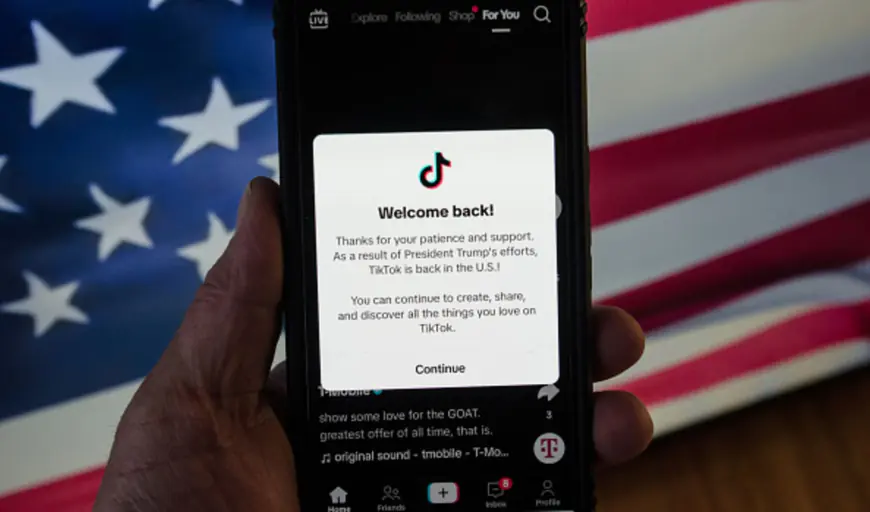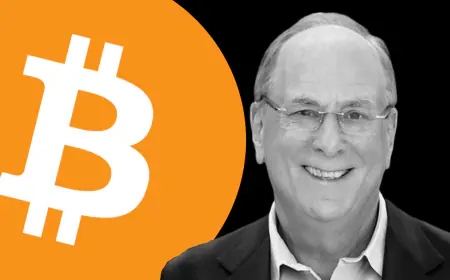TikTok is back — and it's harming kids ‘at an industrial scale,' says psychologist
TikTok is back online in the U.S. — for now, at least. Users of the app may be rejoicing, but it’s bad news for the mental health of millions of kids and teens, according to Jonathan Haidt, a New York University social psychologist and author of the bestselling book “The Anxious Generation.” “Americans should welcome the disappearance of TikTok because the company is causing harm to children, adolescents, and young adults at an industrial scale,” Haidt wrote in a recent blog post co-authored with his book’s lead researcher, Zach Rausch. The social media platform was briefly unusable in the U.S. over the weekend, after Congress passed a law to ban it unless its Chinese parent company ByteDance sold its stake in the app. President Donald Trump signed an executive order on Monday delaying the enforcement of that ban by 75 days, allowing millions of users to hop back online. But a ban might be in Americans’ favor, Haidt and Rausch wrote: TikTok encourages “addictive, compulsive, and problematic use” among its younger users, exposes them to sexual and violent content, and increases levels of anxiety, depression and other mental health issues. (TikTok didn’t immediately respond to CNBC Make It’s request for comment.) And without a ban, kids and teenagers will probably find their way onto the platform — whether parents like it or not. How TikTok changes teenagers’ brains Banning TikTok wouldn’t keep kids off other social media platforms, like Instagram, Snapchat or RedNote — at least, not without more stringent age verification policies on those apps. All of them present psychological risks for young people, research shows. Teens who constantly use social media and smartphones experience higher rates of anxiety and depression, according to a 2023 warning from the U.S. Surgeon General. But TikTok is somewhat more addictive than rival platforms, according to a 2023 Baylor University study — making it the worst culprit right now, according to Haidt and Rausch. Sixty-three percent of Americans between the ages of 13 and 17 used TikTok, with 16% saying they were on the app “almost constantly,” the Pew Research Center found last year. “America would be much better off if TikTok were to go dark,” they wrote in their blog post, pointing to TikTok’s own internal documentation, revealed last year in a lawsuit brought against the company by 14 state Attorneys General. The internal reports show how easily young users become addicted to TikTok, and the resulting negative mental health effects: a “loss of analytical skills, memory formation, contextual thinking, conversational depth, empathy, and increased anxiety,” according to publicly released excerpts. “Kids are spending much less time being with each other, engaging with each other [in person], which is crucial for social development,” says Rausch. Make it normal to ‘not be on social media all the time’ Haidt and Rausch favor broader bans that cover all social media platforms, for all users under the age of 16. But with such sweeping measures unlikely to happen in the U.S. anytime soon, parents and teachers should try new tactics with their kids instead, they say. Encouraging kids to engage in phone-free activities can help them consciously choose to spend less time on social media, Haidt suggested in his book. That kind of approach is particularly important for young kids who don’t yet believe that their social life occurs mostly online, says Rausch. “It is a thorny issue to deal with,” Rausch says. “But by creating other spaces, by setting new norms, by making it normal to not be on social media all the time, that will create a lot of new opportunities and spaces for young people.” Want to up your AI skills and be more productive? Take CNBC’s new online course How to Use AI to Be More Successful at Work. Expert instructors will teach you how to get started, practical uses, tips for effective prompt-writing, and mistakes to avoid. Sign up now and use coupon code EARLYBIRD for an introductory discount of 30% off $67 (+ taxes and fees) through February 11, 2025.

TikTok is back online in the U.S. — for now, at least.
Users of the app may be rejoicing, but it’s bad news for the mental health of millions of kids and teens, according to Jonathan Haidt, a New York University social psychologist and author of the bestselling book “The Anxious Generation.”
“Americans should welcome the disappearance of TikTok because the company is causing harm to children, adolescents, and young adults at an industrial scale,” Haidt wrote in a recent blog post co-authored with his book’s lead researcher, Zach Rausch.
The social media platform was briefly unusable in the U.S. over the weekend, after Congress passed a law to ban it unless its Chinese parent company ByteDance sold its stake in the app. President Donald Trump signed an executive order on Monday delaying the enforcement of that ban by 75 days, allowing millions of users to hop back online.
But a ban might be in Americans’ favor, Haidt and Rausch wrote: TikTok encourages “addictive, compulsive, and problematic use” among its younger users, exposes them to sexual and violent content, and increases levels of anxiety, depression and other mental health issues. (TikTok didn’t immediately respond to CNBC Make It’s request for comment.)
And without a ban, kids and teenagers will probably find their way onto the platform — whether parents like it or not.
How TikTok changes teenagers’ brains
Banning TikTok wouldn’t keep kids off other social media platforms, like Instagram, Snapchat or RedNote — at least, not without more stringent age verification policies on those apps.
All of them present psychological risks for young people, research shows. Teens who constantly use social media and smartphones experience higher rates of anxiety and depression, according to a 2023 warning from the U.S. Surgeon General.
But TikTok is somewhat more addictive than rival platforms, according to a 2023 Baylor University study — making it the worst culprit right now, according to Haidt and Rausch. Sixty-three percent of Americans between the ages of 13 and 17 used TikTok, with 16% saying they were on the app “almost constantly,” the Pew Research Center found last year.
“America would be much better off if TikTok were to go dark,” they wrote in their blog post, pointing to TikTok’s own internal documentation, revealed last year in a lawsuit brought against the company by 14 state Attorneys General.
The internal reports show how easily young users become addicted to TikTok, and the resulting negative mental health effects: a “loss of analytical skills, memory formation, contextual thinking, conversational depth, empathy, and increased anxiety,” according to publicly released excerpts.
“Kids are spending much less time being with each other, engaging with each other [in person], which is crucial for social development,” says Rausch.
Make it normal to ‘not be on social media all the time’
Haidt and Rausch favor broader bans that cover all social media platforms, for all users under the age of 16. But with such sweeping measures unlikely to happen in the U.S. anytime soon, parents and teachers should try new tactics with their kids instead, they say.
Encouraging kids to engage in phone-free activities can help them consciously choose to spend less time on social media, Haidt suggested in his book. That kind of approach is particularly important for young kids who don’t yet believe that their social life occurs mostly online, says Rausch.
“It is a thorny issue to deal with,” Rausch says. “But by creating other spaces, by setting new norms, by making it normal to not be on social media all the time, that will create a lot of new opportunities and spaces for young people.”
Want to up your AI skills and be more productive? Take CNBC’s new online course How to Use AI to Be More Successful at Work. Expert instructors will teach you how to get started, practical uses, tips for effective prompt-writing, and mistakes to avoid. Sign up now and use coupon code EARLYBIRD for an introductory discount of 30% off $67 (+ taxes and fees) through February 11, 2025.
What's Your Reaction?









































































































